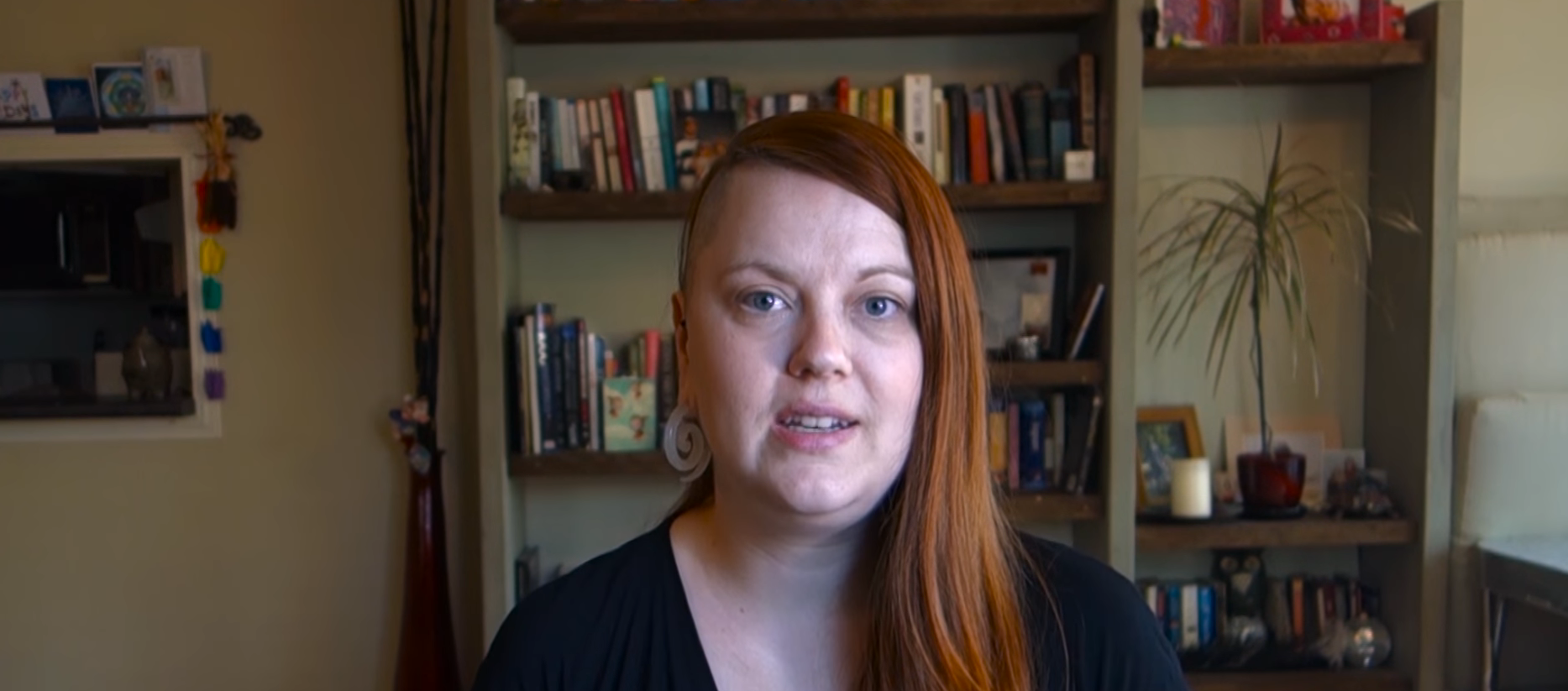Full Transcript:
Hi, I’m Kale. Today I want to talk about the Anarchy in Relationship Anarchy. People have a lot of funny ideas about anarchy in general, so let’s talk about that.
Most of us probably have had very little exposure to anarchistic principles. It might make you think of grade school, and the time you learned about the political spectrum. You know Karl Marx, communism, Stalinist Russia, fascist dictatorships. It might conjure up ideas about chaos and violence, burning government buildings and people in bandannas throwing Molotov cocktails.
So the word anarchy doesn’t give you warm, fuzzy feelings, and you might be wondering ‘Why exactly would I want that in my relationships?!’.
Let’s start with a super basic introduction to anarchy, so we are all on the same page.
Anarchists stand against authority.
Basically they don’t believe another person has the right to make decisions for them, to give them orders or tell them how to live their lives. That part sounds good, right?
This idea can actually make people afraid, especially if they jump straight to extreme examples. If we don’t believe in authority, what is to stop someone from committing physical violence against us?
Although anarchists reject most authority, there are exceptions. Rather than simply accepting the power authority has, they ask two questions: is this authority justified and is it necessary? Some authority is justified and necessary.
The authority of parents to stop their children from harming themselves. The authority of a child to take over their elderly parent’s finances when they are no longer able to deal with them. The authority of society to stop a person from committing physical violence against someone.
Anarchists also stand against hierarchy.
As you can see by the definition, hierarchies are synonymous with authority. There is by default a person at the top in a position of power, and subordinates underneath them.
You are probably starting see how a lot of this is connected to relationship anarchy.
While anarchists stand against authority and hierarchies, they stand for personal liberty and autonomy.
This definition really speaks to me about the deep connection between anarchy and relationship anarchy.
They both reject the authority of other people to make decisions for them, including the people closest to them.
They both highly value autonomy, they want to be their own person, make their own decisions, follow their hearts, act on their desires.
They reject both hierarchies.
Relationship anarchists reject hierarchies within their romantic relationships, and don’t have primaries or secondaries. They also reject social hierarchies, and don’t place romantic relationships above aromantic ones.
These are just a few basic ideas, but you can start to see how important the Anarchy in Relationship Anarchy is. If you want to talk about this further, join our Facebook group down below. Follow me on Twitter and subscribe to my channel to get future videos.


Recent Comments